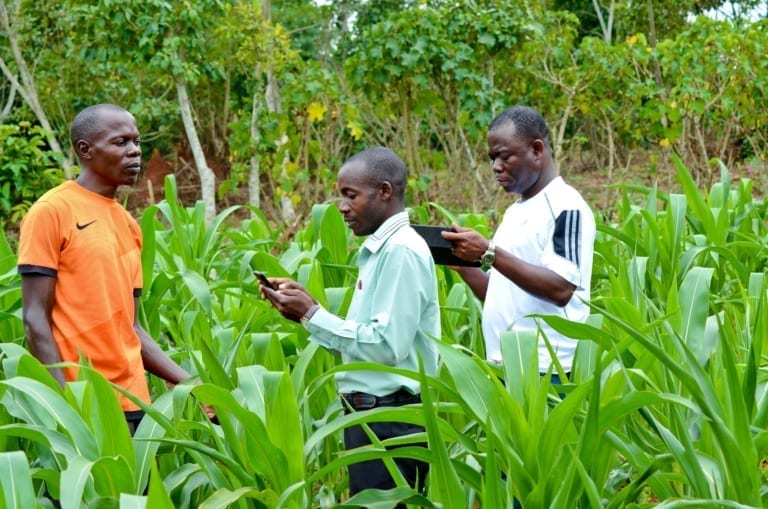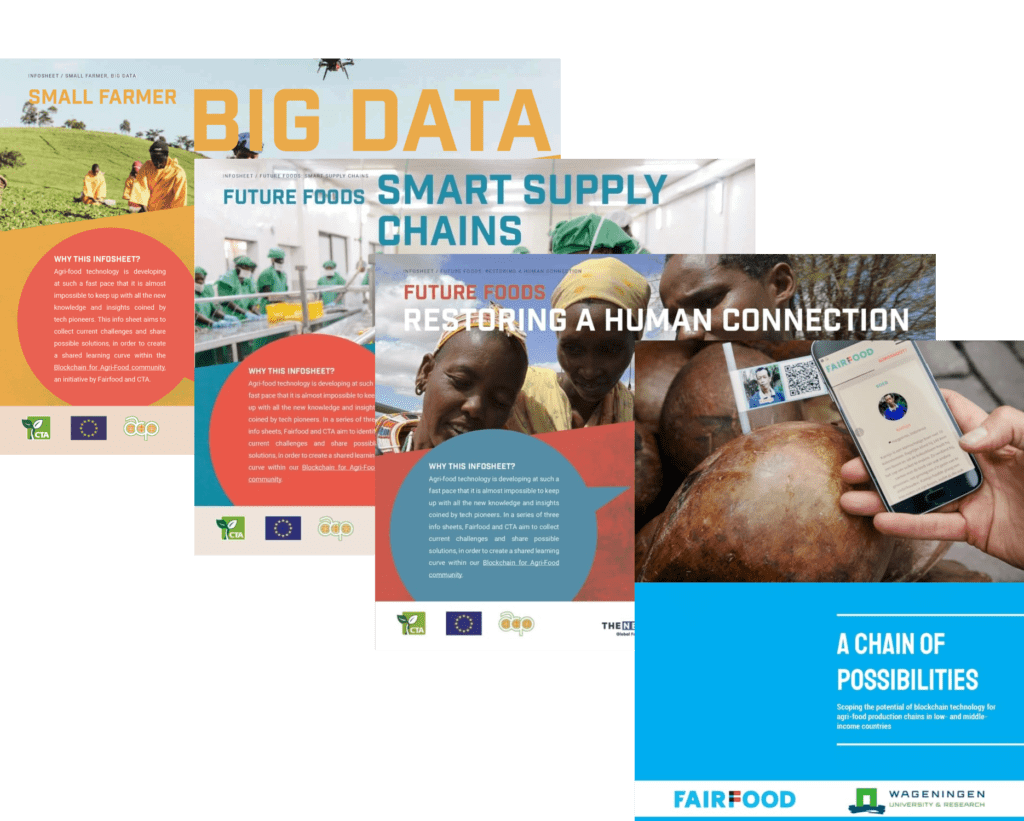How Blockchain can help smallholder farmers: get access to finance
At Fairfood, we identified nine ways in which blockchain technology can help smallholder farmers. In a new blog series we will dive into these nine topics, looking at interesting use cases, reports and visionairs. In the third post, guest bloggers Chris Georgen and Gabriella Skoff (Topl) explore how blockchain can help smallholder farmers get access to finance.
Blockchain technology has much to offer for the world of sustainability, profit-for-purpose and ethics. The power of blockchain is quickly outgrowing a narrow association with its first application of bitcoin and is increasingly developing a critical use-value in the impact space. Blockchains offer a unique tool, providing an infrastructure for anyone to transparently make and verify provable claims. As the impact sector blooms, this capability is of critical value for demonstrating that real, equitable impact—and not just a claim to it—is made. This is the bottom-line value of blockchains in the impact space, but it is only just the beginning.
Alternative credit systems powered by Blockchain
As new applications for blockchains arise, the transformative, cross-sectoral power this technology holds becomes ever clearer. One of the areas where blockchains hold immense promise is in shattering the constraints of complex, global supply-chains in the agri-food sector. These supply chains, often opaque and calcified, are not built to provide transparency for consumers nor opportunity for smallholder farmers. But in a world of shifting demands and technological capacities, things are changing, and a new era of sustainability, accountability and opportunity is taking hold in this sector.
Blockchain technology is helping to empower this revolution by making global agri-food supply chains more transparent, supplying consumers with verifiable information to make educated decisions about purchasing ethical products, and empowering smallholder farmers to move up the value-chain through access to alternative credit systems. While these first points have received broad focus in research and application, the last concept—alternative credit systems powered by blockchain—is a relatively novel but immensely powerful concept that we are only just beginning to explore.
Without access to finance, farmers must harvest and immediately sell their cacao locally, never able to even consider purchasing processing equipment or, let’s say, covering the cost of a confectioner producing chocolate on their behalf.
A major challenge in global supply chains is that most market power settles at the top of the chain, leaving those at the bottom with less access and control and fewer opportunities for their own growth and development. This problem is exemplified by the chocolate industry, where the average cacao farmer receives only 7 percent of the total value produced in their own value chain. That is because supply chains for chocolate production are long and complex, spanning several continents and involving a large diversity of actors.
New chocolate initiatives
A typical chocolate supply chain involves a number of smallholder farmers in western Africa, a host of in-between traders, state-run and private certification, and quality control and labelling bodies—not to mention all of the informal economy workers who provide protection and transportation along the way. Finally, only a handful of powerful, multinational companies such as Cargill control the global trade of cacao beans. Production itself is then dominated by a few huge multinationals like Mars, Ferrero or Mondalez, who maintain near-total control over the value set for a farmer’s cacao crops.
An increasing number of small, boutique chocolate companies known as bean-to-bar initiatives provide an alternative to these entrenched supply chains. These initiatives offer sustainable, ethical chocolate, with a focus on shorter supply chains and a higher percentage of profit going directly to the farmer. Claims like this enable bean-to-bar companies to charge a premium for their products, a higher price which consumers have shown they are willing to pay. Currently however, it is not common for companies to provide any verification for the consumer to know if their claims of the providence of the beans they use or the price the farmers are paid are true. Blockchain technology can support these declarations, helping to reduce greenwashing and strengthen consumer intelligence and qualify ethical claims.

Trapped
Still, the impact of a blockchain-powered bean-to-bar industry is not nearly enough. The reality is that the majority of cacao farmers remain trapped in traditional supply chains because they have limited to no access to finance. Without access to finance, farmers must harvest and immediately sell their cacao locally, never able to even consider purchasing processing equipment or, let’s say, covering the cost of a confectioner producing chocolate on their behalf. Lacking the financial means to change their situation, these farmers have no choice but to remain dependent on the dominant supply chain configuration in order to move their products, affording scant opportunity for upward mobility.
This lack of access to finance for smallholder farmers is a manifestation of a system that does not work in their favour. Smallholder farmers are traditionally unbanked, as rural life makes access to banking services a serious challenge in many countries in the Global South. Financial services simply do not reach the often-remote areas in which these farmers operate. Furthermore, as the majority of farming activities are paid for in cash, there is no paper trail to validate a farmer’s economic activities to banks and therefore no way for them to build good credit in order to receive a loan in the traditional banking system.
While financial services may only be available to city-dwellers or those able to travel to a nearby cosmopolitan hub, anyone with access to a mobile phone can engage with and use a blockchain network.
Access to finance
Let us consider how blockchain technology can empower farmers by providing them a path forward from within this system. First, access to blockchain-powered supply chains grants smallholder farmers the ability to offer verifiable evidence, not only of their production history across harvests but also of any good farming practices or certifications they might have obtained. Second, a novel use for a blockchain-powered supply chain is that microfinance institutions and other lenders can look to this network for proof of these claims. This could enable them to collect alternative data from which they can analyse and construct credit scores for these smallholder farmers.
This blockchain powered alternative credit system would provide greater access to more farmers, as mobile phone use is widespread across the Global South. While financial services may only be available to city-dwellers or those able to travel to a nearby cosmopolitan hub, anyone with access to a mobile phone can engage with and use a blockchain network. Further, the collection and storage of vital information about good farming practices and certification, offered on chain, enables famers to make provable claims along the supply chain and to consumers, a major selling point in today’s economy.
Topl has big dreams for the power of our blockchain to work revolutionary wonders in this space. We have built our blockchain as a flexible infrastructure with these very challenges in mind, to help companies and people doing good work to prove and monetise it. Already there are projects powered by the Topl blockchain and other technologies where farmers in India and Zambia are moving up their own value chains through greater transparency and the resulting access to finance. Blockchain technology has the power to transform finance by providing a network for farmers to make, record and share provable claims with alternative financing institutions and consumers across the globe.
Find out more
—
This article is made possible with the financial assistance of CTA (Technical Centre for Agricultural and Rural Co-operation). The views expressed above can in no way be taken to reflect the official opinion of CTA.



